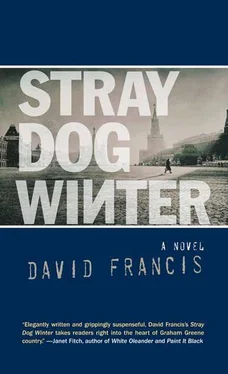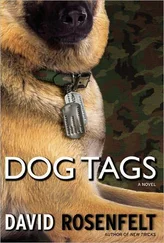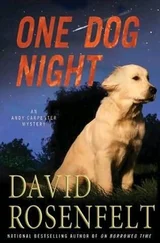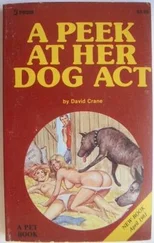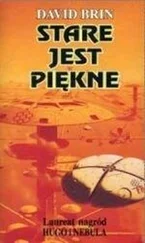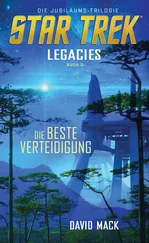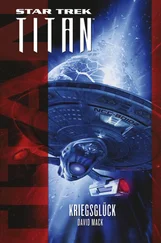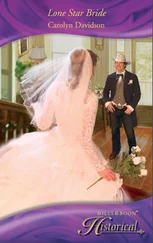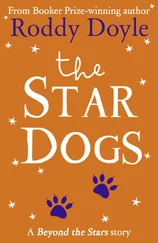The battered metal door opened from the outside, a clanging in the passage. Fluorescent lights switched on brilliantly and Darcy clenched his eyes as a wooziness swept over him. He squinted up at the sound of footsteps, the general looming there, wide epaulettes and medal ribbons, his jacket pulling at its buttons, and Darcy smelled a different smell and knew it was his own sweat.
Can I use the bathroom? he asked.
The general’s eyes were caustic. It is not a hotel, he said. He lowered himself carefully onto a chair that was too small and placed a manila folder and a silver lunch box on the table. His dome head large without his hat, his hair a white shaved shadow, his eyes heavy-lidded; Darcy saw nothing of Aurelio in him but the fullness of his still-dark eyebrows.
The general allowed a damp, bloodless smile then pulled some black-rimmed glasses from his lunch box. You may be having questions, he said, but I will be asking them. His English clipped, his deep tone almost seductive, the moist-lipped mouth. He was different close-up.
Darcy felt an urge to retch but there was no liquid left in him, just a nasty toxic aftertaste. He carefully removed his beanie and endeavoured to sit up straight. He wanted to tell the general he had attended his wedding but realised that was all part of a recruitment that went wrong. Where is Aurelio? he asked.
The general didn’t answer, just delved into the folder then, almost casually, he placed a photo on the table. The photo from Prague.
A wave of fear rose up and Darcy breathed into his beanie’s damp stale wool. More photos placed across the pitted table like a flush of cards. A shot of him standing alone on the roadside at the pleshka , waiting, the perimeter fence behind him. No sign of the son-in-law. Darcy looked up helplessly.
We have in this country Article 206, the general said. Criminal hooliganism with exceptional cynicism. Prison for five years. Or Article 121 muzhelostovo . He pointed to the photo in Prague. Another five.
Darcy beheld his own black and white face turned to the heavens, twisting up in its fleeting shudder. He pointed at it but didn’t look up. That was another country, he whispered, but when he raised his eyes this time the general’s expression was not just callous and weary, but also oddly amused, the arm of his glasses swung gently in his hand.
Darcy turned to look at the dog, which just watched him balefully, and he thought about the son-in-law. Has the Australian Ambassador been notified about me? asked Darcy.
The general placed the glasses carefully on the table. No questions, he said, and Darcy’s right hand fell like a rag onto his lap as he searched the general’s big flushed face for sympathy. I’m a friend of your son’s, he said. I was at your wedding.
The general acknowledged this with a fist slammed down on the photos. Darcy reeled back but the general just smiled again, his bottom teeth crooked, the colour of butterscotch. He set a newspaper cutting on the table, a small photo at the bottom of the page—Chernenko’s daughter on a lawn in front of a large stone house. You know this woman?
Darcy shook his head, his palm scruffing back and forth through his hair in frustration, a sudden welling of fear. I don’t know her; I just know who she is. He looked up so the general would see his sincerity.
You know her dog, said the general, gesturing to the restless whippet. Again the cruel amusement flashed in his eyes.
The whippet stood with its head tucked low and its haunches curled under itself; it looked like a narrow wheel. I saved the dog, he said. Nikolai Chuprakov killed himself.
Did he? asked the general.
Darcy didn’t let himself cry. You know I am innocent, he said. Don’t make me a scapegoat.
You are muzhelostovo , the general said, the syllables spat with disgust.
Then so is Aurelio, said Darcy.
The force of the slap from a huge pink hand stung Darcy so hard his head swung sideways, almost dislodged him from his chair, but he withstood it in silence, without cradling his welted cheek, even as the tears brimmed in his eyes.
You think we are not listening in, said the general. The general smoothed his index finger over the newspaper photo of Anyetta Chernenko, examined the remnants of the print on his fingertips, then he placed a photo of Fin on the table, taken in the street outside the apartment . She leaned into the window of Jobik’s car, sheltered by her black umbrella, and Darcy saw himself there, on the pavement behind them, his hands in his pockets.
Darcy cupped his burning cheek. That’s my friend, he said softly.
We will see, said the general. Soon will be arriving the ConsulGeneral from Turkey. He has questions for you about your friends . He pointed at Jobik’s car. Fin in her sheepskin coat and black fedora, Jobik’s face hidden.
I only met him once, said Darcy. It was his first lie; he hoped he hadn’t wasted it.
Tell that to the Turkish, the general said, glaring as the peepwindow whined open. A pale woman’s face shadowed through the grate. Fin, thought Darcy at first, but then recognised the face from the cutting, Chernenko’s daughter, the high Slavic strength in her cheekbones, her blue eye shadow, staring in. Darcy stood to approach the door, wanting to let her know the truth, that it wasn’t his fault, but the general grabbed his silver lunch box and shoved his chair back. Please get her dog, he said, motioning at the whippet in the cage.
Warily Darcy walked over, unclipped the metal clasp and reached for the leash that lay wet among its tapered feet. The dog shook like a spinnaker, didn’t want to come out of the cage. Darcy didn’t pull, just waited until it stepped forward. He led it quietly to the door, then he found himself kneeling, his head against the burnished silver coat, saying goodbye.
Boyar , the woman said and Darcy looked up at her, tall above him in a full-length brown fur, her stunned blue eyes. Spasiba , she said.
Darcy stood and placed the leash in her slender gloved hand. I took care of him, he said and she nodded, her mouth set in a strange effort at a smile, her eyes moist and shiny.
She not speak English, the general said. He took her arm and guided her down the corridor, but as she turned the corner she glanced back at Darcy. I thank you, she said.
A narrow bed, wooden slats and a worn grey blanket, an iron door. The greasy floor powdered with lime. At the oil drum in the corner Darcy held his breath against the smell of those who’d come before him, pushed the lid free and peed, then slid the iron cover tight. He pushed his elbows against his aching rib cage, pressed his hands into his eyes. He’d passed a boy in the hallway in filthy fatigues and with almond-shaped eyes, Cyrillic letters on his cheeks, branded. A haunted sawn-off face shown on purpose, so Darcy could see what he might become. Outcast and emaciated, a foreign opuscheny a thousand kilometres east of here, no troika through the snow with Aurelio to a secret dacha in the Urals. He was here on this uneven cot, shawled in a stagnant blanket, staring up at a dim bulb on a wire that dropped from the cement ceiling. They watch from somewhere, he thought, though the door slot was covered. On the opposite wall was a heating duct covered with chicken wire, but it blew an icy breeze. His feet were still freezing.
He walked. Five short steps, he turned, then four. He remembered the night he arrived in Moscow, how they had passed this place in the taxi, a huge mustard building with a thousand cells inside. He remembered feeling young then, light and expectant. Fin had told him it’s good to seem naïve, spike your hair and be yourself. He lifted his numb feet and gleaned the difference—Fin only appeared naïve. A shriek from somewhere, a muffled sound like a belt buckle in a washing machine; Darcy conjured a consular official—a broad Australian face with a grim, hesitant smile—coming to collect him and feed him cheese and Vegemite sandwiches, a plane lifting off to that faraway, flyblown place where he’d never belonged but now yearned for. He felt a howling inside him. The raspy telephone voice of his mother: What are you into now?
Читать дальше
